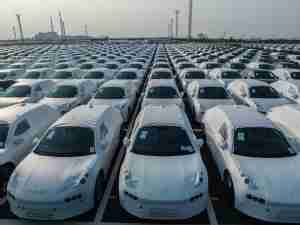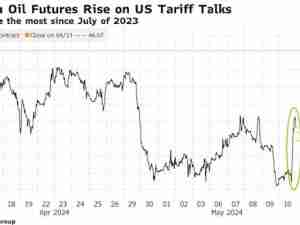A special gathering of a secretive EU trade committee -- requested by Germany -- will deliberate whether the Commission should go ahead with plans for a 43.6 percent tax on Chinese fibreglass.
Chinese imports are currently subject to a 7 percent duty. The Commission's plan would raise this to 50.6 percent to counteract what it deems as illegal Chinese pricing.
A majority of EU countries -- including Germany, Britain, the Netherlands, Luxembourg, Denmark, Sweden and Finland -- will oppose this move during Thursday's meeting, diplomats said.
They are concerned the higher tariff will damage Europe's clean technology sector, which relies on cheap, strong glass fibre materials from China for making wind turbine blades and lightweight cars, ship hulls and trains.
The Commission has until March 2011 to launch anti-dumping tariffs but plans to start interim duties by Sept. 16, according to an internal document seen by Reuters.
The Commission can go ahead with the tax without support from all member states, but majority opposition could prompt it to abandon or modify its plan, as it needs their backing for a final decision for duties in March.
Dumping
European fibreglass producers asked the EU Commission to introduce protective duties last year, accusing Chinese exporters of dumping their wares on European markets below cost.
They say illegal Chinese pricing threatens jobs at producers such as PPG Industries and Saint-Gobain Vetrotex, whose owner Owens Corning invented the ultra-strong glass-based strands.
Opposing countries say the new duty will prompt supply shortages and hikes in production costs, hurting companies such as science-based products firm DuPont and wind turbine giant Vestas, as well as thousands of small firms.
Europe's fibreglass market had an estimated size of 1 million tonnes or a value of 1 billion euros ($1.26 billion) in 2009, with China supplying about 15 percent.
Global demand for the strong and light composites has been growing at twice the rate of global growth as the world increasingly turns to lightweight vehicles and renewable wind energy to cut harmful greenhouse gas emissions.
This year, demand for the material is expected to be 25 percent higher than in 2009, according to some industry estimates, at a time when fibreglass is in short supply, meaning prices could soar.
China is set to play an increasingly important role in this sector, as producers including China Fiberglass already supply about half the world's fibreglass.
"The question Europe needs to ask itself is, do we want to harm those high-tech industries that make composites that are still surviving in Europe," said Nikolay Mizulin, trade lawyer for international law firm Hogan Lovells. (Reuters)








